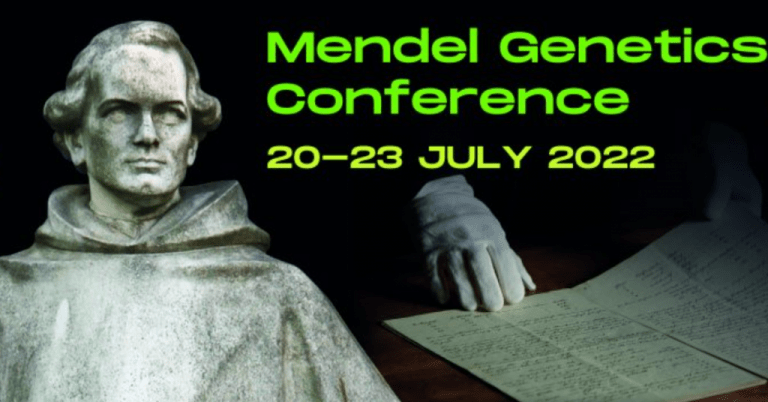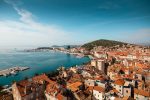A major international conference on evolution and genetics will be held on 20-23 July, with around 400 experts and scientific figures from around the world gathering in Brno for the culmination of celebrations marking the bicentennial of the birth of Gregor Johann Mendel, founder of genetics. Photo credit: MENDELU
Brno, July 17 (BD) – The conference will open and close at the Augustinian Abbey in Mendlovo namesti, and will feature speakers including Ada E. Yonath of the Weizmann Institute of Science in Israel and Thomas Cech of the University of Colorado, both Nobel laureates in chemistry, and Sir Paul Nurse of the Francis Crick Institute in London, who won the Nobel Prize in physiology and medicine. The conference will discuss the latest discoveries in the field of genetics, and seek answers to key questions about the origin of plant and human cell life, evolution, heredity, genetic diseases and the application of new genomic technologies in medicine and agriculture.
Part of the conference program will take place symbolically in the monastery where Mendel lived and worked, studied the heredity of pea plants, kept bees, and created a weather station. “We are honoured to welcome scientists from the five continents of the world,” said Father Jozef Ržonca, a priest of the Order of St. Augustine. “By inviting them to our abbey, we would like to show all participants that Mendel’s phenomenal discovery was also helped by the creative community of Augustinians who support science and education, and the environment of Old Brno.”
“The gathering of scientists whose research builds on Mendel’s discoveries and further develops his knowledge is the best way to thank and symbolically commemorate the legacy of a thinker who is rightly compared to such giants of science as Darwin, Copernicus and Einstein,” said Šárka Pospíšilová, Vice-Chancellor for Science at Masaryk University, co-organizer of the conference. The conference program includes discussion blocks focused on the history and future of genetics, new technologies, and specific topics related to ethical issues in genetics.
Pospíšilová also noted the extent to which genetic breakthroughs affect society and our daily lives. “Genetics is today closely linked to many other scientific disciplines, forming one of the central pillars of modern biology and medicine, but it is also of great importance for society as a whole, as was evident in the case of the COVID-19 pandemic,” she added.
The other organisers of the scientific conference, which is supported by UNESCO, are the Moravian Museum and Společně o.p.s. “For the Moravian Museum, collaboration on the scientific conference is an opportunity to contribute to a comprehensive picture of J.G. Mendel’s contribution to the world,” said Jiří Mitáček, general director of the Moravian Museum. “The Mendel Centre, housed in the authentic premises where Mendel first published the results of his experiments on plant hybrids in 1865, has been engaged in historical research and promotion of Mendel’s life and work for 50 years.”
“Společně has made promoting the life and work of the founder of genetics one of its main goals, partly because J.G. Mendel is still better known abroad than in the Czech Republic. This year, on the 200th anniversary of his birth, we want to change that,” said Jakub Carda of Společně. The expert conference will be followed by the Mendel Festival, on 22-24 July, which will introduce the latest discoveries in genetic research to the general public alongside a range of cultural experiences.
More information can be found on the website www.mendelu.cz







